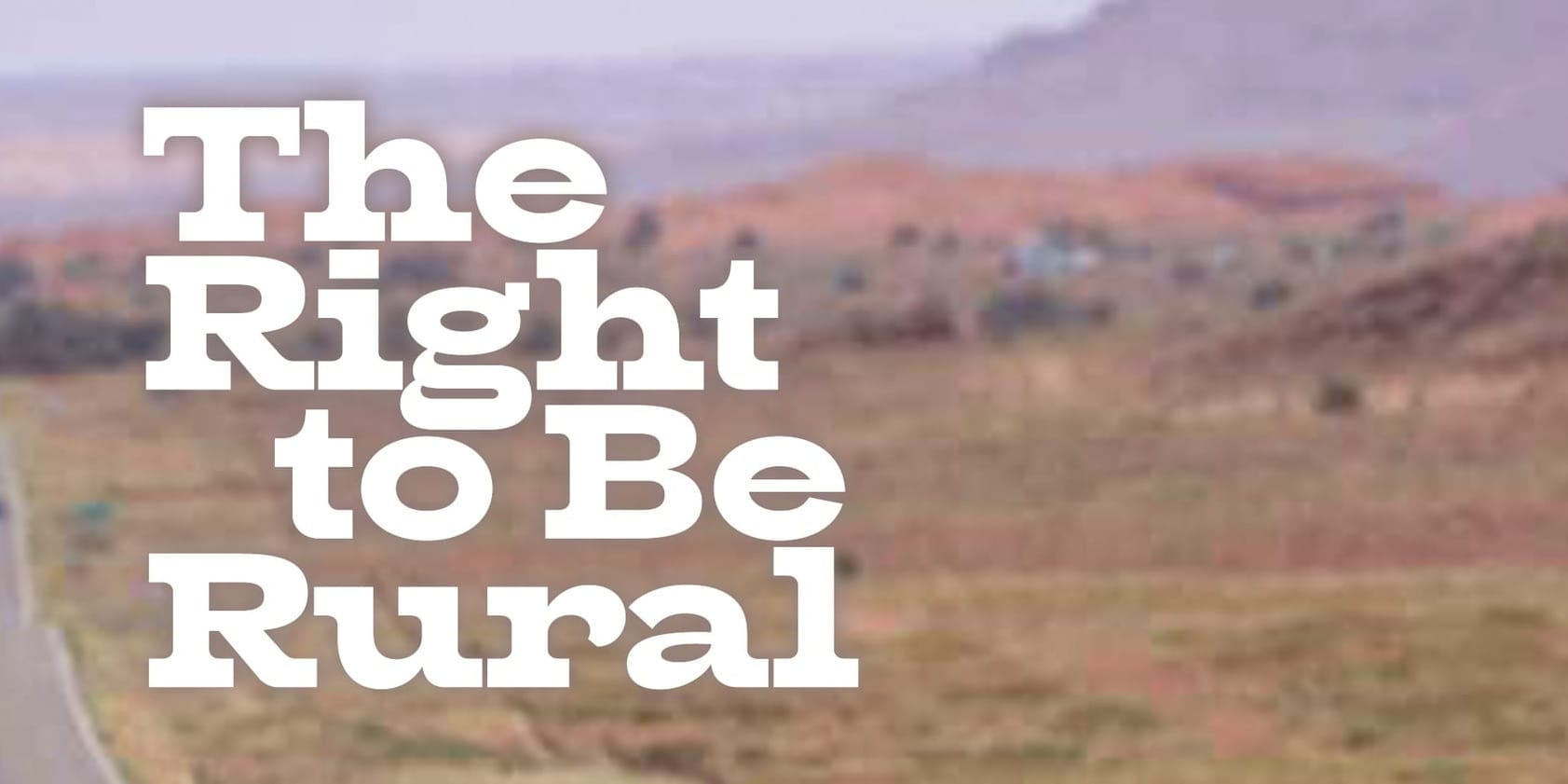The Right to be Rural
A comprehensive look at the challenges facing rural communities worldwide as they mobilize to improve the quality and security of rural futures.

Editors: Karen Foster and Jennifer Jarman
Contributors: Ray Bollman, Clement Chipenda, Innocent Chirisa, Logan Cochrane, Pallavi Das, Laura Domingo-Peñafiel, Laura Farré-Riera, Jens Kaae Fisker, Karen R. Foster, Lesley Frank, Greg Hadley, Stacey Haugen, Jennifer Jarman, Kathleen Kevany, Eshetayehu Kinfu, Al Lauzon, Katie MacLeod, Jeofrey Matai, Ilona Matysiak, Kayla McCarney, Rachel McLay, Egon Noe, Howard Ramos, Katja Rinne-Koski, Sulevi Riukulehto, Sarah Rudrum, Ario Seto, Nuria Simo-Gil, Peggy Smith, Sara Teitelbaum, Annette Aagaard Thuesen, Tom Tom, Ashleigh Weeden, Satenia Zimmermann
In this collection, researchers analyze rural societies, economies, and governance in North America, Europe, Africa, and Asia through the lens of rights and citizenship, across such varied domains as education, employment, and health. The provocative concept of a “right to be rural” illuminates not only the challenges faced by rural communities worldwide, but also underappreciated facets of community resilience in the face of these challenges. The book’s central question—“is there a right to be rural?”—offers insights into how these communities are created, maintained, and challenged. The authors illustrate that citizenship rights have a spatial character, and that this observation is critical to studying and understanding rural life in the twenty-first century. Scholars and policymakers concerned with the health and well-being of rural communities will be interested in this book.
The Right to be Rural is not a new type of right in itself. Rather, it is a bridging idea that allowed contributors to explore the need for mobilization around and enforcement of certain rights relevant to the rural context. Land rights emerge as essential, as do the social rights to be serviced and resourced. This underlines the importance of legal education regarding rights enshrined in a country's legal architecture but made real at the community level.
The book's case studies also reveal that rural space is far from uniform and that rural communities are not on an equal footing with respect to organizing and demanding enforcement of their rights. A focus on rural differences and inequalities must continue to be integrated into future research, policy development, and activism around rural issues.
Overall, we conclude that the umbrella of “right to be rural” was meaningful in a whole host of different contexts and has potential to unite rural mobilization in a collective manner.
The Right to be Rural is available directly from the University of Alberta Press or from Amazon.